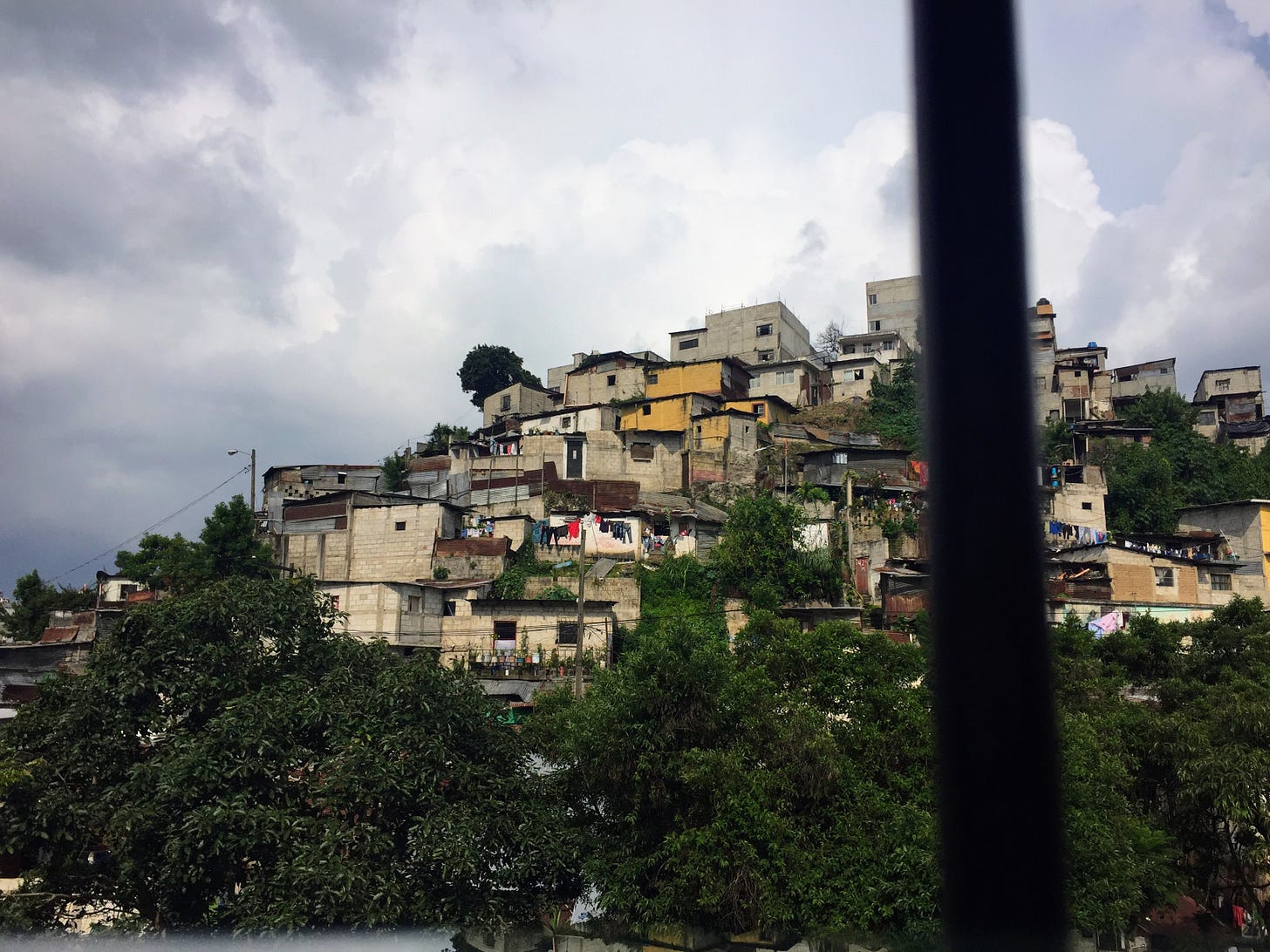The Cost of Asking Questions
A Lunch, and The End of a Non-For-Profit
The post today is connected to the previous stories on this substack, which show how the system can crush us in many different ways. Today’s story is a little longer than usual, but read it and let me know your thoughts.
Many years ago, I was part of a non-for-profit organization that worked for the social and spiritual renewal of our city. At least, that is what we wanted to believe. The programs served a network of over 35 grassroots organizations and leaders across the city. The work encompassed leadership development, organizational capacity building, spiritual and theological formation, and spiritual direction and discernment.
My job was to lead the leadership development component of what we did. My team and I designed, developed, and delivered hundreds of hours of non-accredited theological formation, contextual analysis, and leadership formation. In addition, we designed and led the on-the-ground experiences for leadership teams, financial supporters, and students from the US who came on our vision trips. We had fun, we had a beautiful mixture between rigorously academic and contextual social research. We loved our job, we connected not only grassroots leaders, but also bridged the academy and the street.

As the team did its job, there were people from different walks of life who took interest in the work being done on the ground. There was a group of supporters from the Midwest of the US who took special interest in the work of about ten organizations from the network. They got interested in giving financial support for the organizations on the ground. We knew, however, that the vast majority of the organizations in our network did not have the organizational capacity to execute and report donations, regardless of the size. That is why we came up with what we thought was a good idea.
The team made a proposal that would help everybody involved. Firstly, the donors were to make their numbers and add 15% to the final number destined for donations. The 15% would be for the organization that I worked at, and that would allow us to pass on all of the donation to the organizations doing the work on the ground. The organizations would receive all the money they were pledged. They wanted the organization I worked at would channel the funds to the grassroots organizations we served, and the 15% would help us do that. In other words, we were not charging the Guatemalan organizations any admin fees. The 15% would be used not for organizational overhead, but to design, develop, and deliver leadership formation and capacity building training to the ten organizations the supporters were interested in helping, plus the remaining leaders of the network. That 15% was the equivalent of 50-60% of our annual leadership development budget.
As the relationship between the team and the donors grew, we also learned about our dreams and challenges. We became more real with each other. In my case, I got very comfortable, perhaps a little bit too comfortable. I forgot that I was still in a system which allowed the funders to not see me as an equal.
One Christmas season, the donors wanted to give way more money than we had budgeted that year for the organizations. So, we went out for lunch to talk about the possibilities. I asked them to wait for the next fiscal year. That way, we could prepare the organizations in a better way to grow into the expanded financial capacity.
During the conversation, the leader of the group emphasized that they really wanted to give the money during that year’s Christmas season. They wanted the funds to be used for Christmas programs. That way, children, leaders, and their communities would celebrate and have a beautiful Christmas. I thought for a second or two, and I asked again if they could wait for next Christmas. That way, we could work with the local organizations through the year and teach them how to write a proposal for non-budgeted donations.
The tone of our conversation changed suddenly. I was reminded that I was not talking to an equal. The leader of the group of funders, a white, male, and very wealthy business owner said: “I would rather you guys just channel the money for Christmas programs this year. Why would you get in the way of children having gifts and a Christmas dinner.” I was taken aback by his comment. I was angry, but I kept my cool. So, I started asking questions instead of arguing. I took a deep breath and said: “If you want to give this money through us, it has to help us serve and form our brothers and sisters better. In what way can we do that together?” He thought for a moment and replied: “Can you just do as I say and deliver the money?” I responded: “Why would you like me to do that? There is no urgency for Christmas programs, they have them already budgeted any way.” In response, he slammed the table loud enough for us to listen to him, but just quiet enough to not create a scene at the restaurant and said: “Well, how do you think I feel right now that I know that I am spending anywhere between $700 to $1000 on each of my kids for Christmas (he has 6 kids) while knowing that there are children in Guatemala who will go hungry?” At that moment, I knew that I was dealing with white guilt and fragility. I asked more questions: “Are there black and Hispanic, or even Guatemalan led organizations in your City? I think your money could have a better and immediate impact in your home city. Have you consider giving the money to them?”
I knew that I was digging my tomb with each question. He held all the power at the table. My boss looked at me trying to hint that I should leave the conversation alone. But, I tend to be a little stubborn so I ask one last question: “Why do you feel guilty about spoiling your kids during Christmas? You could spoil black and brown kids in your own city too.” His face got red. I could see his hands tensing up. There was anger in his eyes. He responded in with a serious and offended tone: “are you calling me a racist?” I calmly responded: “I apologize if you feel offended right now. However, I haven’t used those words during our conversation at all. Those words are coming out of your mouth. Is that how you feel about yourself?” I looked at him and continued saying: “Let me walk with you, so we can explore where this is coming from. I think is best we have these conversations first and wait for next year for the Christmas donation.”
Things seemed to be back to normal for the rest of their trip. We kept laughing and exploring my city. I relaxed.
After the New Year, my boss called me to his office. We talked for a little bit, then he said: “The Christmas donation people are asking me to fire you to continue their support. I told them I wouldn’t do that.” I said thank you. By March of the next year, they withdrew all of their support and donations from our small non-for-profit. We lost about 60% of our budget over night. We had to immediately use our reserves to finish the granting process for the first quarter of the year. We could not stay open to serve our city. We had to let go of the staff and close shop.
Sometimes, the cost of asking questions is higher than we anticipated. The system doesn’t like to be questioned. So, if we speak up and question the way things are, we ought to be prepared to pay a price.




You have commented on an important aspect of work being dependent upon donors. Typical donors especially people who donate larger sums of money have expectations of how they want to monies to be focused. Your experience is a warning and a lesson for us. I have found it can be a difficult choice looking at sustaining an organization while staying true to the call when I am focused on the organization. The focus of sustaining an organization begins to guide me of course. It is one of those life lessons that I will not forget. Especially over the past few years I have lost long time donors over staying aligned with seeking justice, human flourishing. The Black Lives Matter movement brought about my largest donor to withdraw donating because he disagreed with my support with the movement.
That donor’s treatment of you was horrifying. I’m sorry you and the organization went through that, and I’m glad they stood by you in the face of the donor’s threats. White guilt and the white savior complex are truly monstrous, suffocating things. They stand in the way of genuine progress and healing, placing heavy burdens on everyone. How sad that the donor could not hear your words and see that there was a wonderful opportunity to use his funds to better help the kids in your community, and to collaborate with you as an equal. Instead, he interpreted your suggestion as personal attack to his authority and “goodness”—probably because he was only ever looking at his own reflection, rather than at the needs of the people he claimed to want to help.